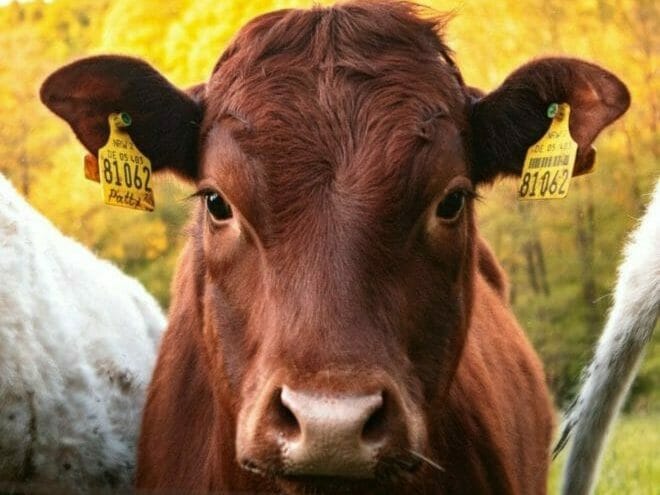The US animal health market generates around $10 billion in sales each year, according to the Animal Health Institute, and makes up roughly one-third of the global market. It is on pace to reach $73.6 billion by 2027. Although increased spending on pets has been a big driver of sales growth, an increase in meat and milk consumption globally is adding to its growth.
There’s also shifting consumer interest in sustainable, welfare-centric, feel-good approaches to taking care of companion and food animals. This has created a ripe opportunity for startups to break into the animal health space, which has been otherwise dominated by giants like Elanco, Merck, Bayer, and Zoetis.
Zoetis recently acquired Performance Livestock Analytics in a major milestone for the livestock tech space. Read more here.
“The innovation in livestock feed additives is fairly old from a technology standpoint,” Mike Seely, CEO at San Diego-based animal health startup Ascus Biosciences, told AFN. Ascus is developing microbe-based animal feed supplements to promote animal health.
“In the case of dairy, the idea of using microbes as feed additives is absolutely not new. They are a very established part of the feed additive sector. They all tend to be one of five microbes and they are all typically not native to the animal and not doing chemistry that really makes sense within the context of animal health, nutrition, or animal science.”
The startup recently closed a $46 million Series B led by Singapore’s Temasek with participation from Aneterra Capital, Formation 8, and Wilbur Ellis’ Cavallo Ventures.
Temasek also recently led an $8 million round in Israeli alternative protein startup Growthwell.
The new capital will be used to help the company expand its customer sales and service teams, advance new products in the pipeline, and refine its tech platform and IP foundation.
Ascus uses proprietary technology to address complexities in native microbial communities living in highly productive and healthy animals. From these insights, it selects effective native microorganisms and isolates them from animal samples to be developed into products. The resulting products are shelf-sable and compatible with widely-used delivery mechanisms that involve incorporating supplements in animal feed.
The company claims that this is a novel approach to animal health and nutrition because most existing microbial products have not been developed based on a comprehensive understanding of animal microbiomes.
“In beef battle, we are doing a lot of work and I think we have made the most profound discoveries. When you put cattle on corn, the lactic acid load builds up, the Ph drops, and the animal can become acidotic, which means unproductive and unhappy,” Seely says. “What we found by doing comprehensive discovery work is that a lot of organisms that can help cattle be on corn are not conducting chemistry related to that. They are doing other things.”
Ascus has multiple microbial solutions in development, with some already in sales mode from dairy, poultry, beef feedlot, equine, to companion species. It currently sells its products direct to farmers and local retailers while working with academics, veterinarians, and other groups on marketing and outreach.
As for challenges, Seely notes the complexities that come with blending science, marketing, and farmers’ needs into one clear path. Fortunately, in his view, farmers, nutritionists, and veterinarians tend to be sophisticated parties aware of the benefits of bringing new discoveries in animal health to their animals.
A big appetite for innovation in animal feed
Ascus Bio is not alone in its mission to make feed additives less antiquated. When it comes to improving agriculture’s sustainability marks, identifying new approaches to animal feed was listed as one of the 25 most impactful approaches in a McKinsey & Company report.
Nutreco’s Feed&Food Tech Challenge seeks startups in the animal nutrition and aquafeed space while Cargill has partnered with a feed analysis tech startup. Agrisoma Biosciences is basing its technology on the Carinata seed to cultivate bio-based jet fuel as well as animal feed. The mission to reduce dependence on antibiotics in livestock production has also lead to some interesting innovations through alternative approaches in the form of feed additives.
Some insect farming startups are also cultivating bugs to replace traditional animal feed ingredients at a lower sustainability impact like Beta Hatch, another Cavallo-backed startup. NextProtein, which recently raised an $11.2 million Series A, is scaling up its insects-for-animal-feed operation in Tunisia.





